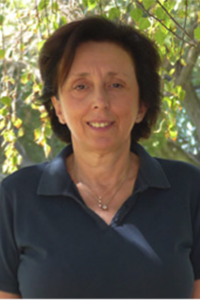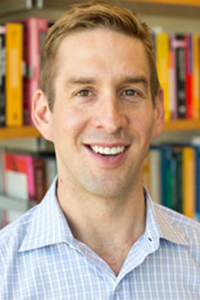Lightning Talks
Giulia Galli - "Materials by scientific design: the role of large scale simulations"
Liew Family Professor, Institute for Molecular Engineering
Giulia Galli is the Liew Family professor of Electronic Structure and Simulations in the Institute for Molecular Engineering at the University of Chicago. She also holds a Senior Scientist position at Argonne National Laboratory (ANL) and she is a Senior Fellow of the UChicago/ANL Computational Institute. Prior to joining UChicago and ANL, she was Professor of Chemistry and Physics at UCD (2005-2013) and the head of the Quantum Simulations group at the Lawrence Livermore National Laboratory (1998-2005). She holds a Ph.D. in Physics from the International School of Advanced Studies (SISSA) in Trieste, Italy. She is a Fellow of the American Physical Society (APS) and of the AAAS. She is the recipient of an award of excellence from the Department of Energy (2000) and of the Science and Technology Award from the Lawrence Livermore National Laboratory (2004). She served as chair of the Extreme Physics and Chemistry of Carbon Directorate of the Deep Carbon Observatory (DCO) in 2010-2013 and she is currently the director of MICCoM (Midwest Integrated Center for Computational Materials), established by DOE in 2015. Her research activity is focused on the development and use of theoretical and computational tools to understand and predict the properties and behavior of materials (solids, liquids and nanostructures) from first principles. (http://galligroup.uchicago.edu/).
Gordon Kindlmann - "Visualizing pioneer neuron motion from light sheet microscopy"
Assistant Professor, Department of Computer Science and the Computation Institute
Gordon Kindlmann's researches image analysis and data visualization to improve the computation of imaging-based science. Science pairs measurement tools that produce experimental data with computational tools to process the data. Advances in scanned imaging modalities (like MRI and confocal microscopy) are constantly increasing the speed, resolution, and sophistication of image measurements. Scientists can now form hypotheses and conduct experiments faster than they can find or create the computational analysis best matched to their new image data. Unfortunately, the process of creating new software remains slow or opaque for many people, and advances in parallel computing (required for large images) complicate the process even for experts. Kindlmann collaborates with physical and biomedical researchers who acquire image data to answer scientific questions. His research simplifies how informative visualizations are created, and improves how relevant image features are detected, sampled, and quantified. Kindlmann is also interested in the theoretical and perceptual bases of effective data visualization. He fosters re-usable and reproducible computational science by making all his research software open-source.
John Schneider - "Network interventions for HIV elimination"
Associate Professor, Departments of Medicine and Public Health Sciences
Dr. Schneider’s interdisciplinary research employs network approaches to examine Human Immunodeficiency Virus and Sexually Transmitted Infection prevention and transmission dynamics in South India and South Chicago. He leads efforts to operationalize improved prevention and treatment strategies in resource restricted settings by first describing the social networks and then leveraging them at the human and microbe level as interventions. He has completed some of the first examinations of sexual networks of tribals and of truck drivers from a generally representative sample in India, and has developed new digital communication strategies for collecting network data. He works on novel HIV prevention strategies in high-risk populations such as minority MSM both in Asia and the US. He has close affiliations with public health education and training institutions in India and oversees a transport sector clinic in Southern India. As Director of Global Health Programs for the Section of Infectious Diseases and Global Health, Dr. Schneider teaches HIV and Global Health courses at the University of Chicago and frequently has students and other trainees from around the country working on research or clinical projects in India.
Matt Taddy - "Bayesian learning on big data"
Assistant Professor, Department of Economics
Matt Taddy is Associate Professor of Econometrics and Statistics at the University of Chicago Booth School of Business. His research is focused on statistical methodology and data mining, driven by applications in business and engineering. He developed and teaches the MBA 'Big Data' course at Chicago Booth.
Taddy works on building robust solutions for large scale data analysis problems, at the interface of econometrics and machine learning. This involves dimension reduction techniques for massive datasets and development of models for inference on the output of these algorithms. He has collaborated both with small start-ups and with large research agencies, including NASA Ames, and Lawrence Livermore, Sandia, and Los Alamos National Laboratories, and is a research fellow at eBay.
Taddy earned his PhD in Applied Math and Statistics in 2008 from the University of California, Santa Cruz, as well as a BA in Philosophy and Mathematics and an MSc in Mathematical Statistics from McGill University. He joined the Chicago Booth faculty in 2008.
Felix Tintelnot - "Using the UChicago RCC to better understand the global economy"
Assistant Professor, Department of Economics
Felix Tintelnot’s research interests include international trade and industrial organization, in particular the location and production decisions of multinational firms. His scholarly paper “Global Production with Export Platforms” received the 2013 World Trade Organization’s Essay Award for Young Economists. Between 2005 and 2008, Tintelnot was a German National Academic Foundation (Studienstiftung des Deutschen Volkes) fellow. More recently, he was an Institute for Computational Economics fellow at the University of Chicago. He is currently a research fellow of the Center for Research on International Finance and Energy Security at Pennsylvania State University, as well as a CESifo research affiliate. Tintelnot received a diplom in economics (with distinction) from the Free University of Berlin and a PhD in economics from Pennsylvania State University. He joins the University of Chicago after completing a one-year International Economics Section Fellowship at Princeton University.





